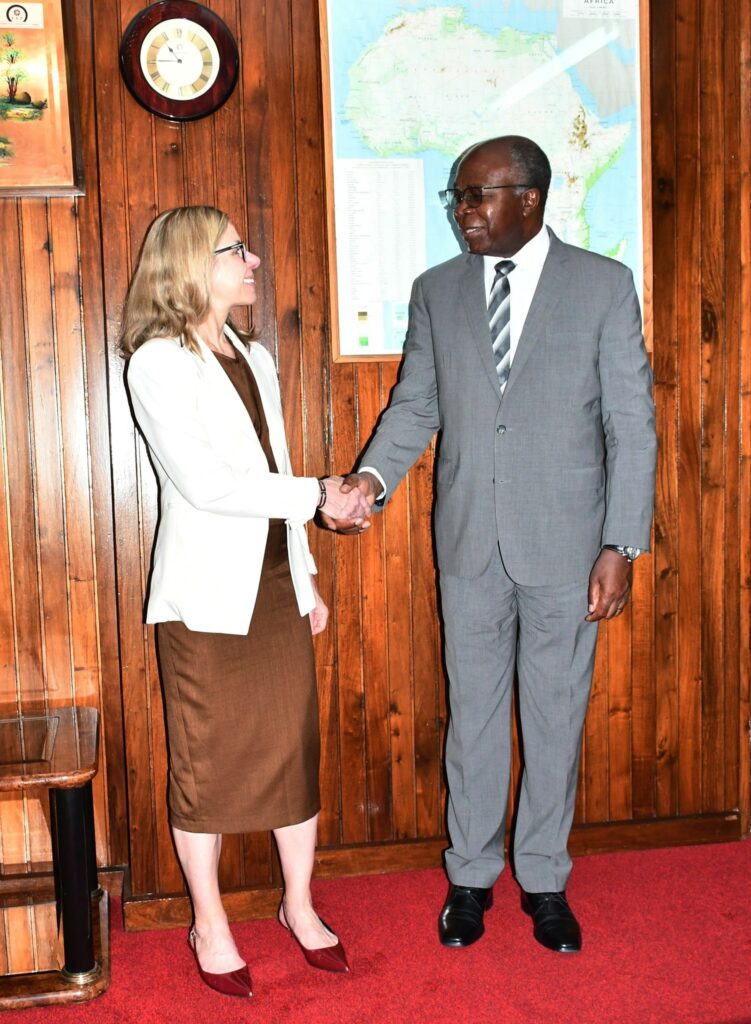Zambia Strengthens World Bank Partnership to Boost Youth Opportunities
Zambia’s partnership with the World Bank has received a major boost, signalling new economic opportunities for young citizens as the country accelerates reforms, investment, and job creation.
At a meeting held at the Ministry of Finance and National Planning in Lusaka, Minister of Finance and National Planning, Dr Situmbeko Musokotwane, hosted Ms Anna Bjerde, the World Bank’s Managing Director for Operations, to reaffirm the institution’s continued support to Zambia’s recovery and growth agenda.
According to Dr Musokotwane, the strengthened collaboration is aimed squarely at building an economy that works for young Zambians through digital transformation, renewable energy, modern infrastructure, and stable public finances.
“Every kwacha we spend must translate into productivity, jobs, and opportunity for citizens,” he said.
The meeting reviewed a range of major World Bank-supported programmes that are already impacting lives and livelihoods:
- Digital Zambia Acceleration Project – improving internet speeds, digital payments and online public services.
- ASCENT Clean Energy Programme – expanding renewable power and opening up green jobs.
- Transforming Landscapes Initiative – protecting forests and providing rural income opportunities.
- Health System Innovation – digitising health services and advancing smart medical technologies.
- Development Policy Financing – ensuring economic stability and improved service delivery.
Government officials emphasised that these initiatives are not abstract policy goals, but practical pathways for young entrepreneurs, engineers, farmers and creatives to participate in modern economic value chains.
A key highlight of the discussions was the Lobito Corridor, a joint Zambia–Angola transport and energy network that will link the Copperbelt to the Atlantic Ocean. The latest feasibility study has confirmed that the planned 830-kilometre railway is commercially viable.
Once completed, the corridor is expected to create thousands of jobs in logistics, manufacturing, construction and agriculture, while drastically reducing export transportation costs.
Dr Musokotwane said: “For the past three years we’ve been laying the groundwork. Now it’s time to move from plans to results. Let the cargo move — our minerals, agricultural produce, and manufactured goods must reach regional and global markets.”
Ms Bjerde commended Zambia for making progress under difficult circumstances, including the fallout from COVID-19, drought and debt stress.
“It is truly inspiring to see how far Zambia has come. Your experience shows that with commitment, clear direction and partnership, progress is possible,” she said.
She added that Zambia currently ranks among the strongest project implementers in Africa, with a clear focus on job creation and sustainable development. The World Bank plans to deepen cooperation in energy, infrastructure, climate resilience and human capital investment.
The strengthened relationship has direct implications for young people, from digital careers and agribusiness, to clean energy, mining services and manufacturing.
In practical terms, it means:
- More reliable electricity for homes and businesses;
- Faster and cheaper trade routes through the Lobito Corridor;
- New financing for youth-led enterprises;
- Modernised schools and healthcare systems; and
- Stronger fiscal discipline to protect public services.
“This partnership is not just about projects, it’s about people, productivity and progress,” Dr Musokotwane stated.



